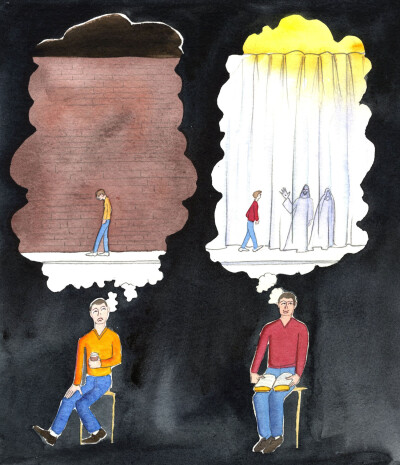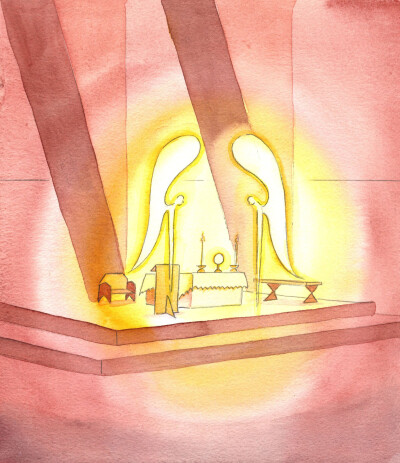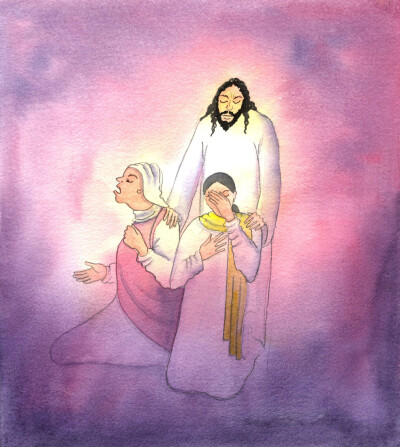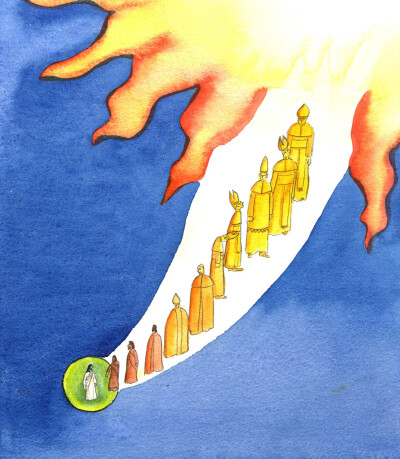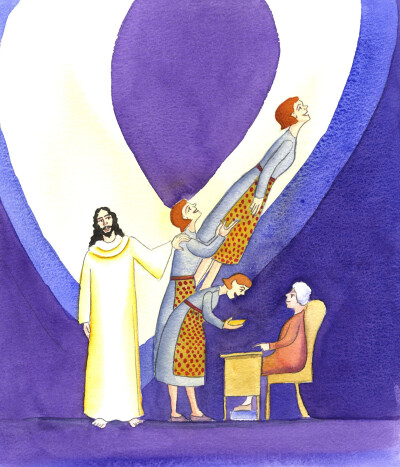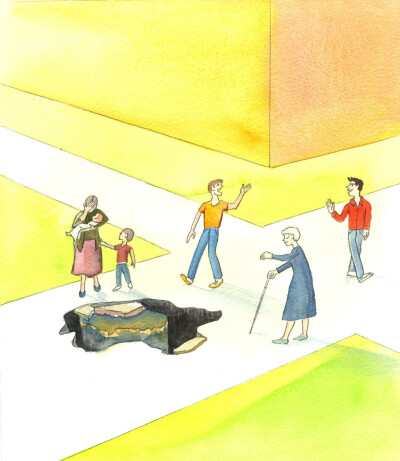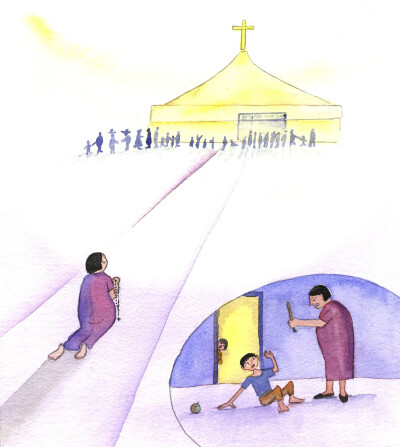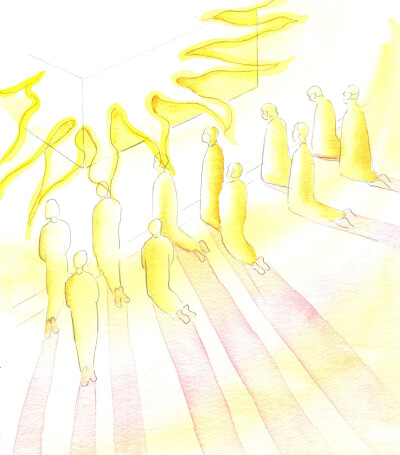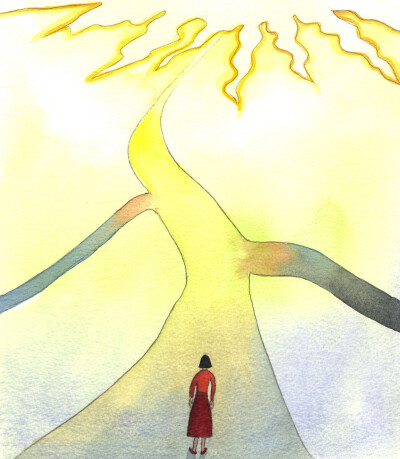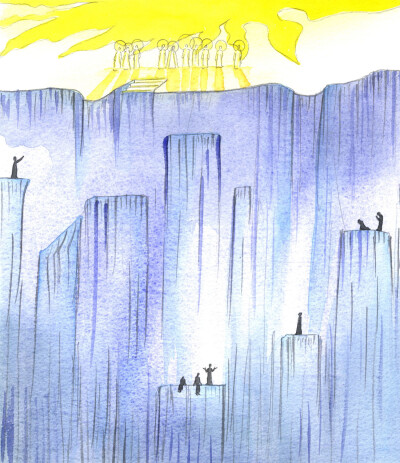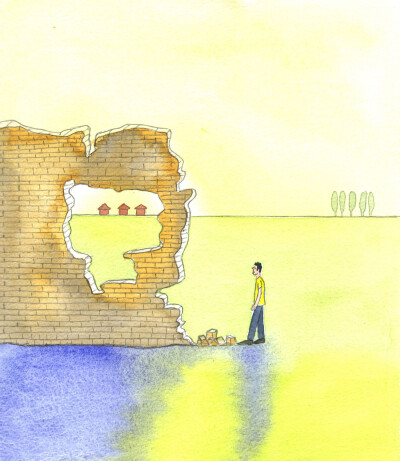Search Page
Showing 1081 - 1100 of 1250
God is not far away from us; however, a person who trusts in the Son of God, and tries to lead a good life, knows that only a veil separates people on earth from God and the Saints in Heaven. A person who lives for selfish aims, feels as if God is far away - if that person believes in God - and that between God and himself there is an impenetrable wall. This false impression is caused by his sins.
Some good souls cannot go straight to Heaven. It is common to hear people say, with a smile, that they will have to go to Purgatory, that they know they are not saints. Yet it is a tragedy, in their eyes, when they arrive, to be held captive there, as they see at last what lack of love for God, or laziness, kept them from achieving real holiness. What remorse they feel there, when they see that they could have become worthy to leap straight from earthly life into the embrace of their Saviour, Jesus.
The problem at the heart of many modern tragedies is that a person refuses to love his neighbour. This is true, whether soldiers burn the crops of terrified people, or healthy people treat the sick as a nuisance, or someone sets out with deliberate plans to make a person miserable. People who do such things ignore God's wishes. We need to examine our true intentions.
Priests should set an example of holiness and purity, neither giving up nor watering down the Faith, nor developing a worldly spirit in order to be popular. They will do little good if they are disloyal to the Saviour, Who asks them to imitate Him, and keep people safe from Hell.
A worldly priest hopes to fit in, more easily, with society; yet he will do no good amongst those with little interest in religion or the moral laws if he seems to be disloyal to Christ, and disloyal to the ideals of charity, simplicity, chastity and humility that he should uphold.
Christ does not see many images of Angels or even Saints in many modern churches, though He would be pleased to see them; but He assures us that real Angels really surround Him at the altar, both at the Mass and during Benediction, or by the tabernacle. They are servants of Him, the King.
We are right to put prayer first - to put Christ first - no matter how busy our day. Whether we are religious sisters or mothers looking after sick children, we will do our work better and more cheerfully if it is underpinned with prayer. Blessed Mother Teresa insisted that her busy sisters had an hour's adoration each day.
As Jesus was close to Mary and Martha when their brother Lazarus died, so, He is close to all who mourn and weep today, sharing their sorrow.
God looks from Heaven upon the Earth, and sees the long line of Popes whom He has appointed to be leaders of the other Bishops and of the Church. He sees that although all have been faithful to the Tradition, some have been silent when they should have spoken and allowed evil to flourish. Jesus is the model for all Popes: gentle with the weak but bold in correcting serious faults or misunderstandings.
The person who is Baptised is able to receive Confirmation too, and the Holy Eucharist; and so, being fully initiated into the Church, and remaining in a state of grace - it is to be hoped - that person is on a sure road to Heaven as he or she fulfils everyday duties and tries to discern God's plan for his or her life.
Christ wants us all to know that nothing matters more than this: to do good, in union with Christ, and to go to Heaven, by the grace of Christ, when our work on earth is done, and God calls us Home.
Just as the land which is not watered by spring rains becomes dry, causing subsidence and dangerous lesions in the road, so a spiritual life not fed by the sacraments becomes weak. Those most likely to fall into the pit are those preoccupied by earthly troubles, those careless in their everyday life, and those unable to go to church who sink into depression or despair.
If we treat our fellow-creatures with contempt or hard-heartedness, we cannot draw down graces from Heaven by our special devotions to Our Blessed Lady, no matter what efforts we put into our devotions. We cannot please Our Mother whilst blithely disobeying the advice, and the Commandments, of her beloved Son.
Those who adore the Lamb, on earth, in sincere devotion, will do so in Heaven, if they persevere to the end. But those who do not adore Christ, here on earth, will not adore Him, close by Him, in Heaven - unless they repent and are changed before they die.
Whenever we make new efforts to be more attentive to Christ's wishes, and more vigilant about our sins and failings, we come to prayer in a new closeness to Christ; even if we neither see nor feel this, it's as if the 'wall' that seems to separate Heaven from earth has been torn open, and Christ gazes down with joy and gratitude, because He is loved.
Before we arrive at the edge of the Abyss, in dying, each of us would do well to ask: "have I done what God wanted, to arrive at death with a peaceful heart?" What could each of us have taken to heart, from all the prayer cards, novenas, spiritual warnings, that we have read in a lifetime?
After every Confession, every new start on our spiritual journey, we ought to move straight ahead, on the Way to greater sanctity. This means we should fix our eyes on Christ; with His help in the sacraments and in prayer we can avoid those routes which lead only to sin, in alienation from God, here and in eternity.
When people think about the subject of death, many speak about accidents. Yet God in His Providence decides the length of each person's life on earth. As a farmer sows the seed, and harvests the crop when it is ready, so God brings His friends home to Heaven when their work is done.
Some Catholics believe that Purgatory is no more than a peaceful ante-room before Heaven. There are deep caverns of Purgatory, however, where those who led sinful lives but were saved at the last moment by the Last Sacraments are permitted by our merciful God to do the penance they failed to do on earth. They enter Heaven, later on, in humility and gratitude.
When a Christian prays to the Father through Christ only infrequently, not frequently as he ought, it's as if he had begun to build a wall; but each time he returns to it, he finds that a great part of it has collapsed, and cannot shelter him. Without frequent prayer, we can neither stay close to Christ nor lead a virtuous life.
Showing 1081 - 1100 of 1250

